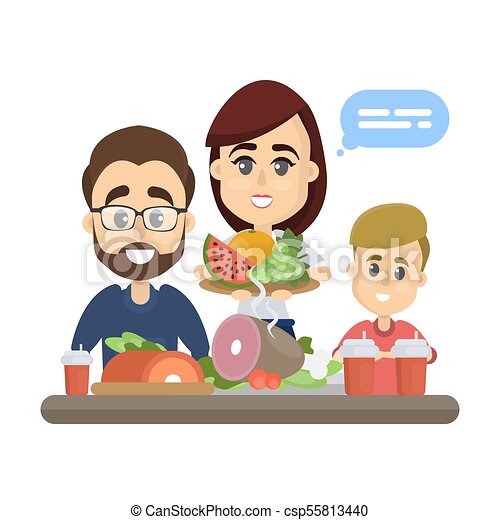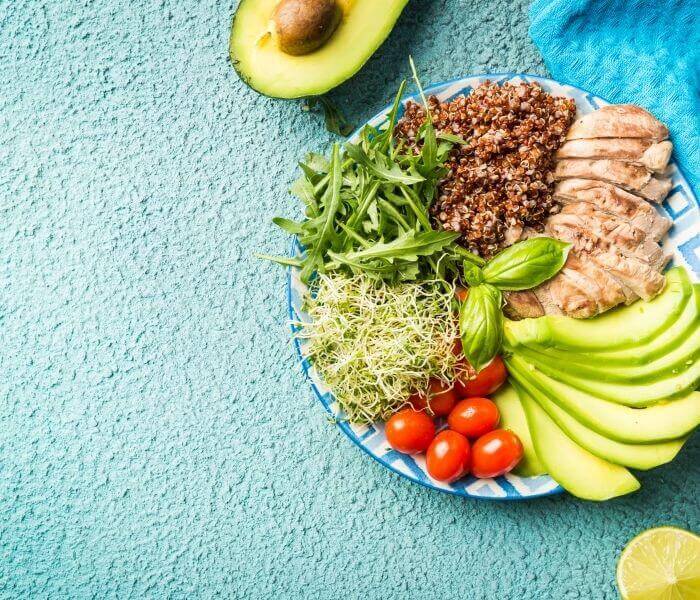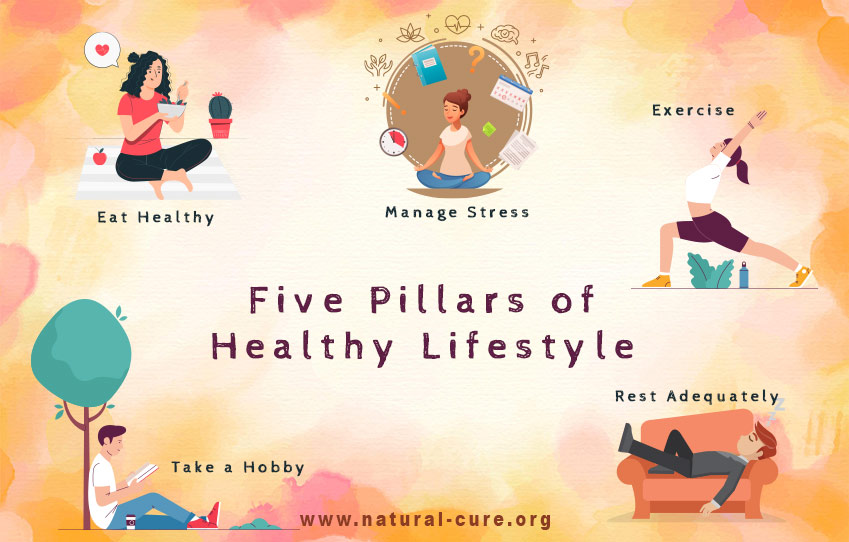
For the baby's and mother's health, it is vital that a pregnant woman eat a healthy diet. This is because pregnancy brings about a variety of physiological changes that can require additional nutrients. A woman who does not receive enough nutrients from her diet may experience complications during pregnancy. In addition, a healthy diet can help to reduce the risk of postpartum depression.
Pregnant woman should eat a variety, particularly fruits and veggies. These foods provide a wealth of vitamins, minerals, and are essential for the growth of the fetus. There are also studies that show that preterm births may be less common if you eat more fruits and vegetables. Consuming too much processed food, or fruit juices, can pose a risk to the developing fetus.
A good pregnancy diet should consist of whole grains, protein-rich and healthy fats. Avoid refined sugars, processed foods and alcohol while pregnant. It is also a good idea to limit caffeine consumption. Coffee should be limited to two cups a day.

Vitamin C-rich foods are also good for you. Vitamin C is necessary to absorb iron. It is important for the development of the foetus. The American Pregnancy Association recommends that women consume at least 27 mg of Iron per day. Anemia occurs when a pregnant woman isn't getting enough iron. A low birthweight can be caused if there is not enough iron in the fetus.
Eggs are an important food for pregnant mothers. They are rich in protein and are one of the few sources of choline. Choline plays an essential role in brain and cardiac development. Eggs should be cooked to eliminate the risk of salmonella infection. Soybeans and pork are also good sources of choline.
The fetus also needs protein-rich foods. Milk products, eggs, meat and legumes are good sources of proteins. A woman's calorie need increases by about 300 to 500 calories between the second- and third trimesters. For this reason, pregnant women should consume five small meals daily. She should also eat a high-protein snack before bed.
A medical practitioner can prescribe supplements to a woman whose diet is not in line with recommended levels. Folic acid and vitamin B6 may be prescribed by a doctor. A woman should only take vitamin D6 if she is severely deficient.

During pregnancy, the body experiences a dramatic rise in blood volume. A woman's body can produce up to 40-45% more blood than usual. It is important to increase fluid intake. Consuming 8 to 10 glasses of fluids a day is recommended. Coffee, tea, and soda should not be consumed by pregnant women. Too much caffeine may cause harm to the development the fetus.
According to the American Pregnancy Association, pregnant women should consume between 600 and 800 ugs of folic acid per day. Folate is important for neural tube development in the fetus.
FAQ
How can you live your best life every day?
It is important to identify what makes you happy. You can then work backwards once you have identified your happiness. You can also inquire about the lives of others.
You can also find books such as "How to Live Your Best Life" written by Dr. Wayne Dyer. He talks about finding happiness and fulfillment in all aspects of our lives.
How do I count calories?
You may be wondering "what is the best diet for you?" or "is counting calories necessary?" Well, the answer depends on several factors including your current health status, your personal goals, your preferences, and your overall lifestyle.
Which one is right for you?
The best diet depends on me, my health, my goals, my lifestyle, and my preferences. There are many different diets, some good, some not. Some diets work for some people, while others are not. So what should I do? What can I do to make the right decision?
These are the questions this article will answer. It starts with a brief introduction of the different types of diets available today. The pros and cons of each diet are then discussed. We'll then discuss how to choose which one is best for you.
To begin, let's take a quick look at the different types of diets.
Diet Types
There are three main types of diets: low fat, high protein, and ketogenic. Let's look at each one briefly.
Low Fat Diets
A low-fat diet is a diet that reduces the amount fats consumed. This is accomplished by decreasing the intake of saturated fats like butter, cream cheese, and other dairy products. You can replace them with unsaturated oils (olive oil and avocados) For those looking to lose weight quickly, a low fat diet is often recommended. However, this kind of diet may cause problems such as constipation, heartburn, and indigestion. It can also lead to vitamin deficiencies, if someone doesn't get enough vitamins in their food.
High Protein Diets
High protein diets restrict carbohydrates in favor of proteins. These diets often have higher levels of protein than most other diets. These diets are meant to help increase muscle mass and decrease calories. The downside is that they may not provide adequate nutrition for someone who needs to eat regularly. They can be quite restrictive and are not recommended for everyone.
Ketogenic Diets
These diets are also known under the name keto diets. They are high in fat, moderately high in protein, and low in carbohydrates. Athletes and bodybuilders use them because they allow them more time and harder training without getting tired. However, they must be used with caution to avoid nausea, headaches and fatigue.
How can I reduce my blood pressure
Find out the causes of high blood pressure first. Next, you must determine the cause and take steps to decrease it. This could be as simple as eating less salt, losing weight (if necessary), or even taking medication.
Also, make sure to get enough exercise. If you don't have time for regular exercise, then try walking as often as possible.
Consider joining a gym if your current exercise regimen is not satisfying you. A gym that has other members who share your goals will be a good place to start. You will find it easier to keep to a workout schedule if you have someone to watch you at the gym.
Statistics
- WHO recommends reducing saturated fats to less than 10% of total energy intake; reducing trans-fats to less than 1% of total energy intake; and replacing both saturated fats and trans-fats to unsaturated fats. (who.int)
- nutrients.[17]X Research sourceWhole grains to try include: 100% whole wheat pasta and bread, brown rice, whole grain oats, farro, millet, quinoa, and barley. (wikihow.com)
- WHO recommends consuming less than 5% of total energy intake for additional health benefits. (who.int)
- This article received 11 testimonials and 86% of readers who voted found it helpful, earning it our reader-approved status. (wikihow.com)
External Links
How To
27 Steps to achieve a healthy lifestyle when your family only buys junk food
The most common way to eat healthy is to cook at home. But, it can be hard to make healthy meals because many people don't know how. This article will provide some helpful tips for making healthier dining out choices.
-
Choose restaurants that offer healthy options.
-
Before ordering meat dishes, order salads and other vegetables.
-
Ask for sauces made without sugar.
-
Avoid fried items
-
Request grilled meats instead of fried ones.
-
You shouldn't order dessert unless it is absolutely necessary.
-
Make sure that you have something else to eat after dinner.
-
Take your time and chew slowly.
-
When you eat, drink plenty of fluids.
-
Breakfast and lunch should not be skipped.
-
Take fruit and vegetables along with every meal.
-
Consider drinking milk instead of soda.
-
Try to stay away from sugary drinks.
-
Reduce salt intake.
-
Try to limit your frequent visits to fast-food restaurants.
-
If you can't resist temptation, ask someone to join you.
-
You should not allow your children to watch too many TV programs.
-
Do not turn on the television while you eat.
-
Do not drink energy drinks.
-
Take regular breaks from the office.
-
Exercise early in the morning.
-
Get active every day.
-
Start small, then build up slowly.
-
Set realistic goals.
-
Be patient.
-
Even if you don’t feel like it, find the time to exercise.
-
Positive thinking is key.